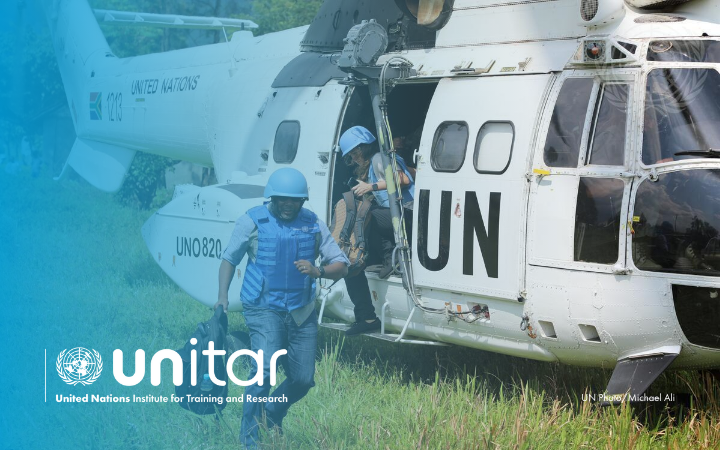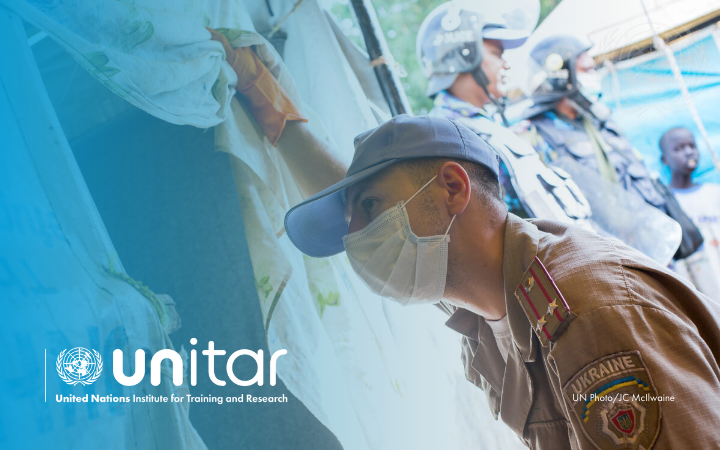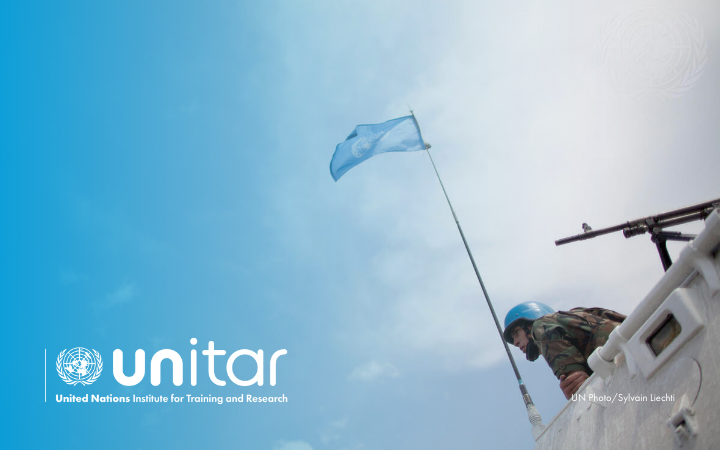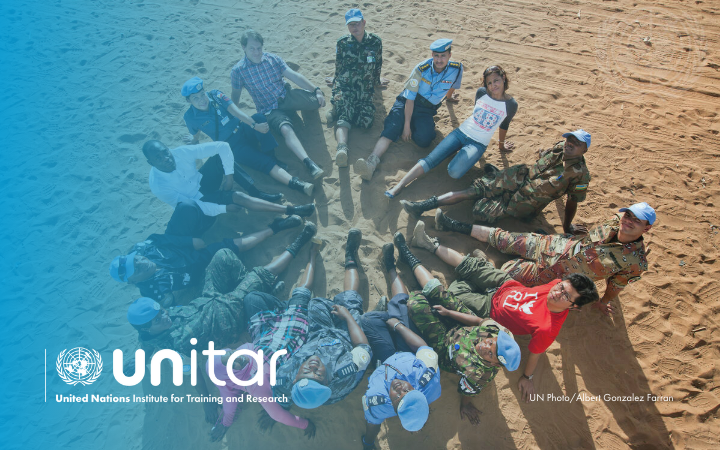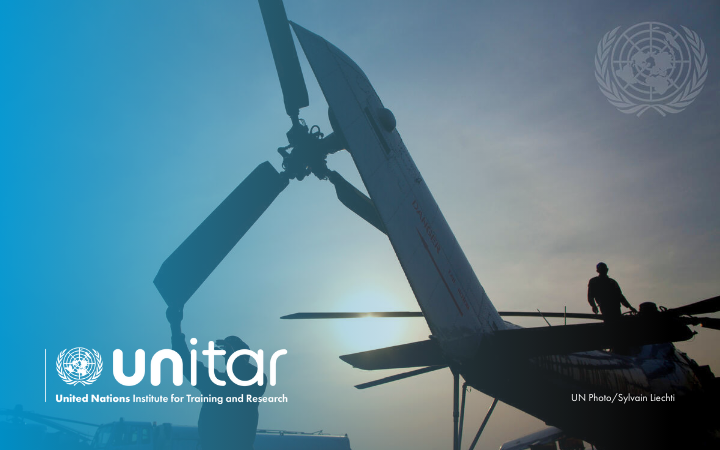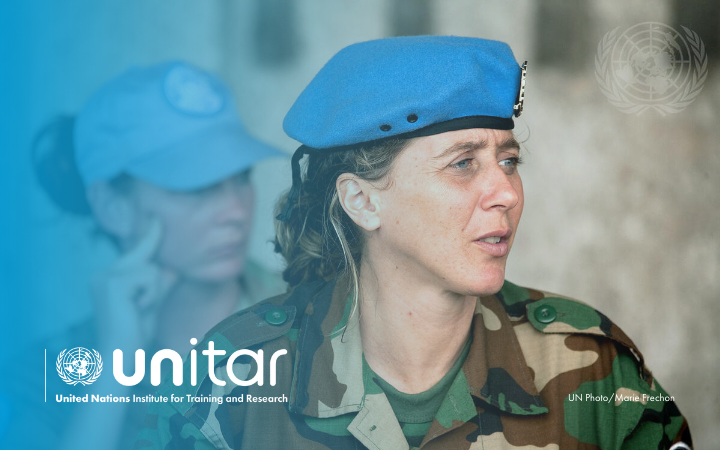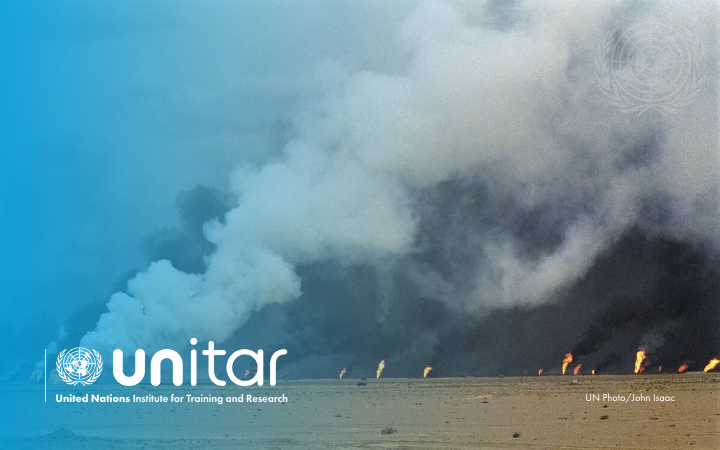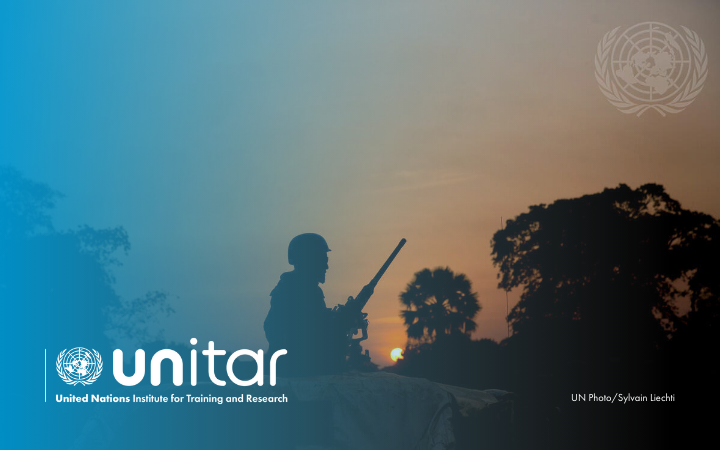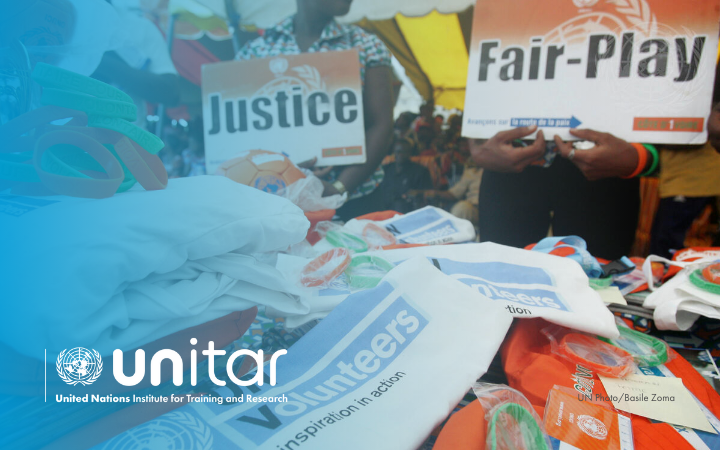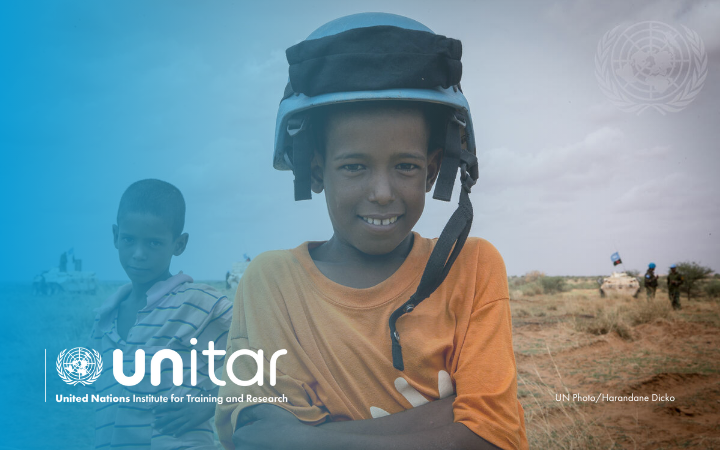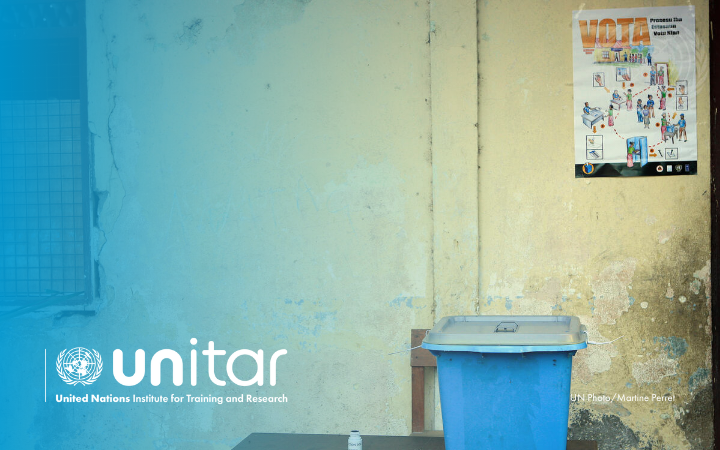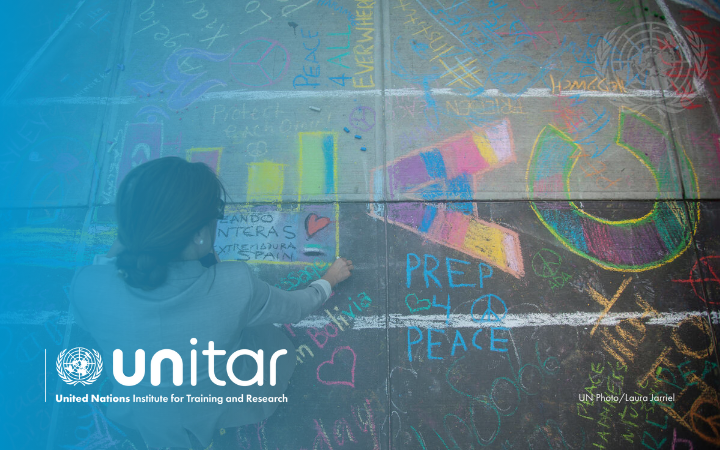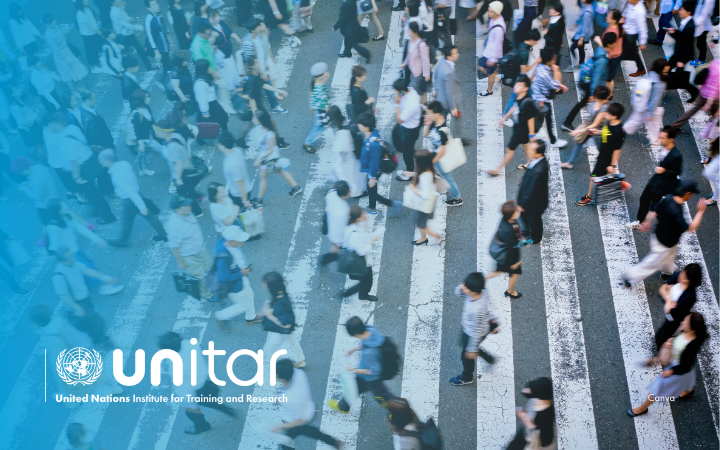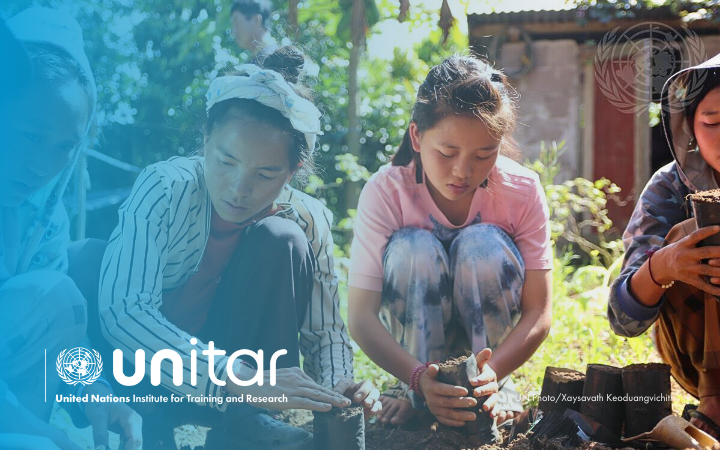The joint initiative by UNITAR and the UN Volunteers Programme (UNV) offers 15 self-paced online courses designed to enhance the knowledge and skills of UN Volunteers in key areas such as Women, Leadership, Peacebuilding, Electoral Security, and Conflict Prevention.
These courses provide advanced insights and practical frameworks, enabling UN Volunteers to develop competencies in conflict resolution, gender dynamics, environmental sustainability, and other critical areas. They aim to prepare volunteers to effectively address real-world challenges, make meaningful contributions to peace and security, and foster sustainable development in their communities.
The courses are ongoing, accessible at any time, and available free of charge to all assigned or deployed UN Volunteers. Prior familiarity with the topics is beneficial but not required.
For more information, contact: elearning.ptp@unitar.org
Introduction to Peace Operations
This course provides a deep dive into the complex world of UN peacekeeping, exploring its evolution, operational frameworks, and organizational structures. Participants will examine how peacekeeping helps prevent and resolve conflicts, support post-conflict peacebuilding, and protect vulnerable populations. By understanding the mandates and diverse tasks carried out by over 112,000 personnel in global missions, learners will appreciate the intricate dynamics of modern peace operations and their critical role in fostering international stability and security.
Protection of Civilians in Peace Operations
Examining the critical imperative of civilian protection in peacekeeping, this course focuses on the strategies and challenges faced by missions tasked with safeguarding civilians, particularly in conflict zones marked by systemic violence. It delves into the historical development of protection mandates, case studies such as Sierra Leone, and the evolving roles of peacekeepers. Participants will gain a nuanced understanding of the operational, legal, and ethical dimensions of protecting civilians under threat in volatile environments.
Transitional Justice and Peacebuilding
Addressing the complexities of transitional justice in post-conflict societies, this course explores mechanisms such as truth commissions, legal trials, and reconciliation initiatives. Participants will study the interplay between justice and peacebuilding, including how the United Nations supports the rule of law and addresses systemic human rights violations. Through case studies and real-world applications, the course highlights challenges, lessons learned, and best practices in fostering societal healing and sustainable peace.
Strengthening Civilian Capacities to Protect Civilians
This course introduces the principles and methodologies of Unarmed Civilian Protection (UCP), a nonviolent approach to safeguarding at-risk populations. Participants will learn how UCP empowers communities to protect themselves and integrates into broader protection frameworks. Real-world examples illustrate its effectiveness in mitigating violence and fostering resilience in conflict zones, highlighting the growing importance of civilian-led initiatives in the global protection ecosystem.
Human Security in Post-Conflict Interventions
Focusing on the individual-centric approach of human security, this course explores how post-conflict interventions can address threats such as poverty, instability, and violence. Participants will study the theoretical underpinnings of human security, its application in rebuilding communities, and its role in creating sustainable development. Case studies and practical insights provide a comprehensive understanding of designing interventions that prioritize dignity, safety, and empowerment in fragile settings.
Women, Leadership and Peacebuilding
This course highlights the transformative role of women in peacebuilding, emphasizing their leadership in conflict prevention, resolution, and post-conflict recovery. Participants will analyse gendered impacts of war, explore UN resolutions on women’s roles in peace processes, and develop gender-sensitive strategies for leadership. Through interactive modules, the course equips learners to recognize and harness the contributions of women as agents of change in rebuilding resilient societies.
Understanding Conflict and Conflict Analysis
This course provides tools for dissecting the causes, actors, and dynamics of conflicts to inform effective interventions. Participants will explore methodologies for pre-intervention assessments, gaining insights into the underlying mechanisms that drive conflicts. Through theoretical and practical exercises, learners will develop critical skills for designing peace operations that address root causes and prevent escalation in complex environments.
Leadership, Team and Self-Management in Conflict Settings
Designed for leaders in high-stakes environments, this course focuses on managing teams, making sound decisions, and maintaining personal resilience amidst conflict. Participants will learn strategies for fostering effective collaboration, navigating stress, and inspiring teams to achieve peacebuilding goals. Practical scenarios provide insights into balancing self-management with the demands of leadership in volatile settings.
United Nations Approach to Disarmament, Demobilization and Reintegration
This course offers a detailed exploration of the United Nations’ Disarmament, Demobilization, and Reintegration (DDR) framework. Participants will study the phases of DDR, the integration of cross-cutting issues like gender and youth, and its role in broader peacebuilding efforts. Interactive exercises deepen understanding of the practicalities and challenges of implementing DDR programs in diverse post-conflict settings.
Conflict Resolution
Focusing on communication-based approaches, this course examines negotiation, mediation, and diplomacy as tools for resolving international conflicts. Participants will explore theories, practices, and case studies to understand how dialogue can de-escalate tensions and build sustainable agreements. The course emphasizes the application of these techniques in United Nations peace operations, providing a framework for practical conflict resolution.
Child Soldiers and Security Forces
This course addresses the recruitment and use of child soldiers, exploring the systemic factors driving this phenomenon and its implications for security. Participants will learn strategies to prevent recruitment, engage with security forces, and rehabilitate affected children. The course highlights practical approaches to addressing the human and societal costs of child soldiering in conflict zones.
Electoral Security and Conflict Prevention
This course examines the vulnerabilities surrounding elections in volatile regions, offering strategies for preventing and managing electoral violence. Participants will study real-world examples, such as post-election violence in Kenya, and learn about tools for dispute resolution and election security. The course equips learners with practical skills to safeguard electoral processes and mitigate conflict triggers.
Confronting Trauma
Addressing the widespread impact of psychological trauma in humanitarian contexts, this course explores the types, consequences, and innovations in trauma care. Participants will learn about scalable solutions for trauma management and the importance of integrating psychological support into peacebuilding and development initiatives.
Understanding and Transforming Stress
Designed for professionals in demanding roles, this course explores the impact of stress and burnout on individuals and organizations. Participants will learn practical techniques for enhancing resilience, fostering well-being, and sustaining their capacity to contribute effectively to social and peacebuilding efforts.
The Inside Job of Collaboration
This course delves into the dynamics of collaboration in complex environments, emphasizing self-awareness, productive dialogue, and team building. Participants will learn how to create supportive systems and foster cooperation, even in challenging scenarios. The course highlights the interplay between personal well-being and collective effectiveness in addressing global challenges.


